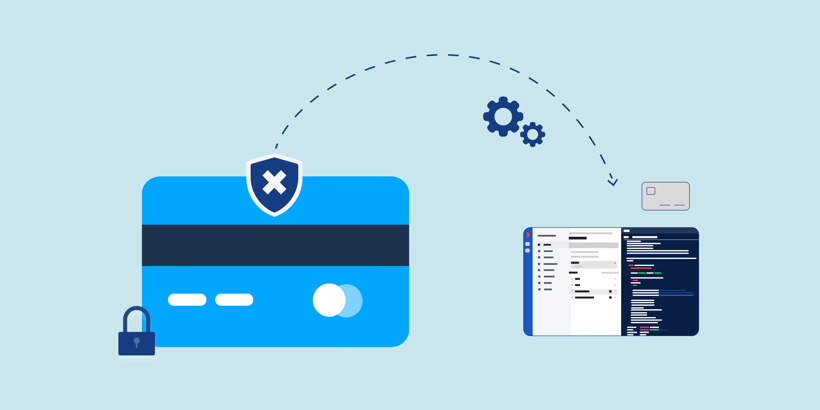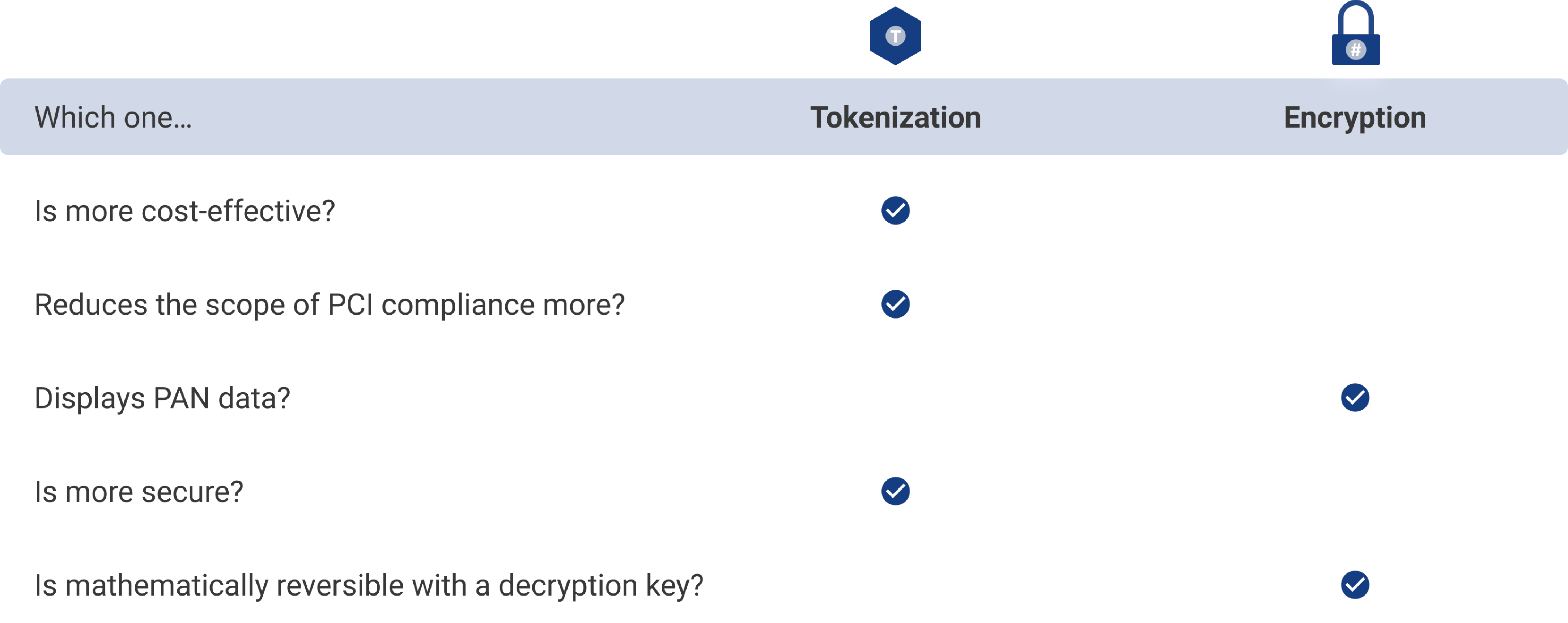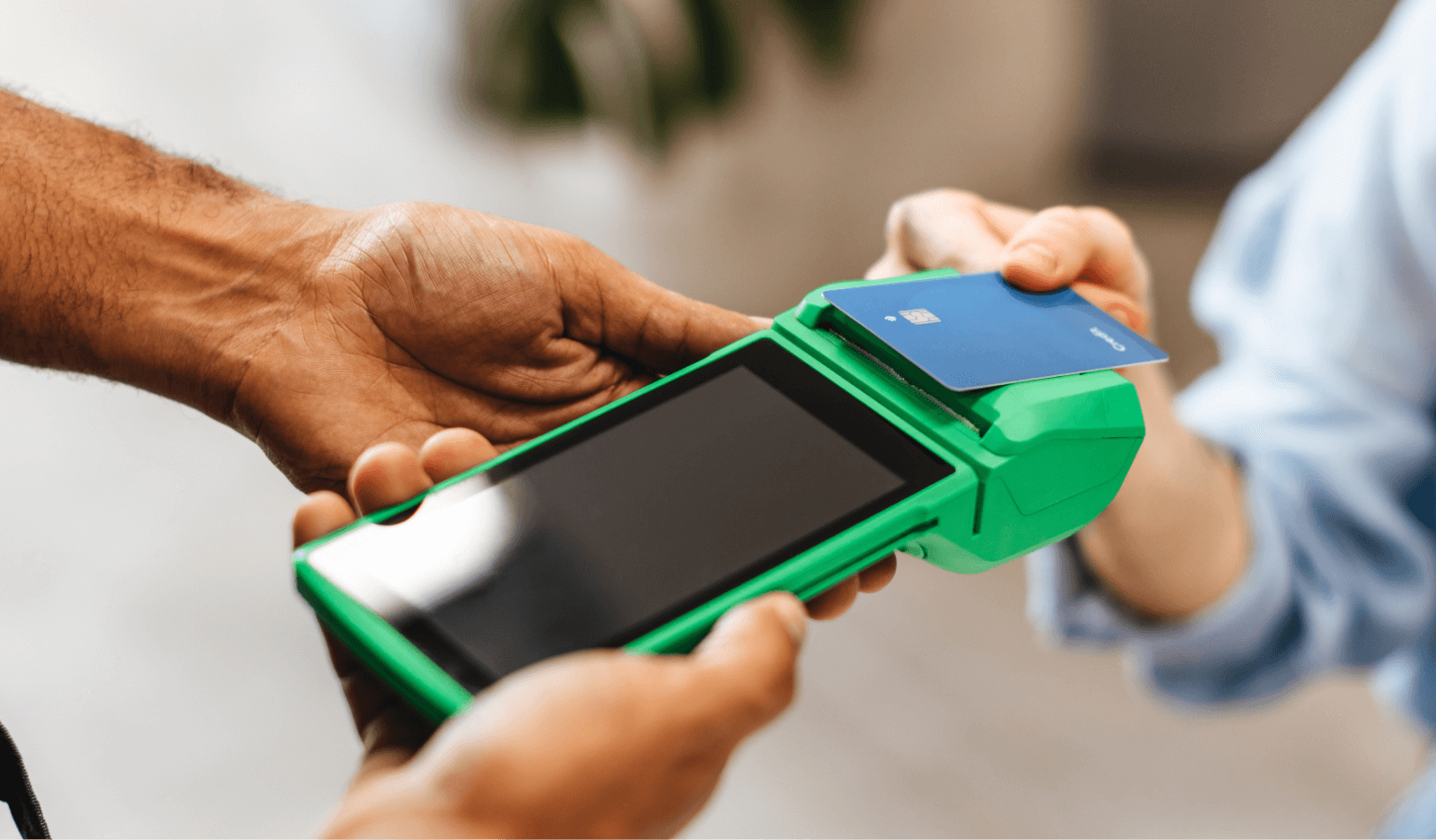
Tokenization is a security measure built into a business’s payment processing system that provides an extra layer of security to sensitive card data.
It is widely used in the payments processing industry — allowing venues to store card information securely and enabling guests to spend without revealing any sensitive information.
Join us as we go through what tokenization is, how it works, why it’s worth using, and how it differs from encryption.
What is payment tokenization?
Payment tokenization is the process of replacing sensitive payment data (like credit card numbers) with an algorithmically-generated random token number. It happens as soon as the guest uses their card to pay.
The purpose of tokenization is to protect your guests' sensitive information. Ultimately, tokenization seeks to add an extra layer of security to payment transactions and prevent card fraud. It is also helpful in the fight against digital breaches or attacks, as card data is secured behind the token number and not visible to attackers.
How does payment tokenization work?
When a guest pays with a card, their primary account number (PAN) is replaced with a randomly-generated token number (the token).
After that, the token will pass through the internet to process the payment until it reaches completion. No bank or card details are ever exposed during this process — only the token number. The actual card details are safely held in a secure token vault.
Examples of payment tokenization
In the payments industry, tokenization is used in four main ways.
Tokenization in eCommerce
Tokenization helps when guests are shopping online. If the website they purchase from tokenizes the card numbers it keeps on file, the guests' card details will be safe even if the website is hacked. No one will ever see the guests' real information — not even the business owner — so they are kept highly secure.
Learn more about how ROLLER incorporates this kind of tokenization for all online transactions.
Keeping a “card on file”
Some businesses can keep your “card on file” for recurring payments. In these instances, your real card or bank details will not be kept on file; instead, a randomly and securely generated token number will be attributed to your ‘card.’
Learn about how ROLLER does this for all membership recurring payments.
One-click checkouts
Some eCommerce sites now provide a “one-click” checkout option for frequent guests. The guests’ payment data is stored in a secure token created on a previous visit. But this can only happen if the guest agrees to have their data stored this way.
Mobile wallets
Perhaps the most heard-about option is storing tokens in mobile wallets such as Apple Pay.
Tokenization is at the heart of the mobile wallet buzz these days. Guests love this payment option as it is easy and convenient. But best of all, their data is stored in a token!
Card and account numbers, security codes, and even expiration dates are all held securely in a token in the guest's mobile wallet.
Payment tokenization vs. Encryption
The main difference between tokenization and encryption is that tokenization replaces sensitive data with a token. In contrast, encryption encrypts data at the origin and decrypts it at the end destination.
This or that: tokenization vs. encryption

While both methods have proven successful over the years, tokenization has recently emerged as the preferred option. The main reason for this is that it is the more cost-effective option, and on top of this, tokenization keeps all guest payment data hidden throughout the entire process.
Additionally, unlike encryption, once a token is created, it is mathematically impossible to reverse this process and expose the original data.
Why should your venue use payment tokenization?
For the above reasons, payment experts have reported that organizations are increasingly switching from encrypting their data to utilizing tokenization.
Among all the reasons given above, the overarching reason for this is that tokenization is simply more secure than encryption. And so, it presents as the most attractive option where the main goal is to keep guest payment data as secure as possible.
Tokenization: the future of payments data security
Payments data security is an ever-evolving area. And specifically for venue operators, staying abreast of the latest payment processing solutions is essential.
If you are deciding how you would like to handle your guests' payment data and are searching for a cost-effective, modern, and highly secure method, consider going with a provider that adopts tokenization in their systems.
Related articles
.png)

.png)
Payment Trends Revealed: Insights from the 2025 Attractions Industry Benchmark Report
Enhance your guest experience
Get free education, tips and inspiration to help you run a successful venue.

